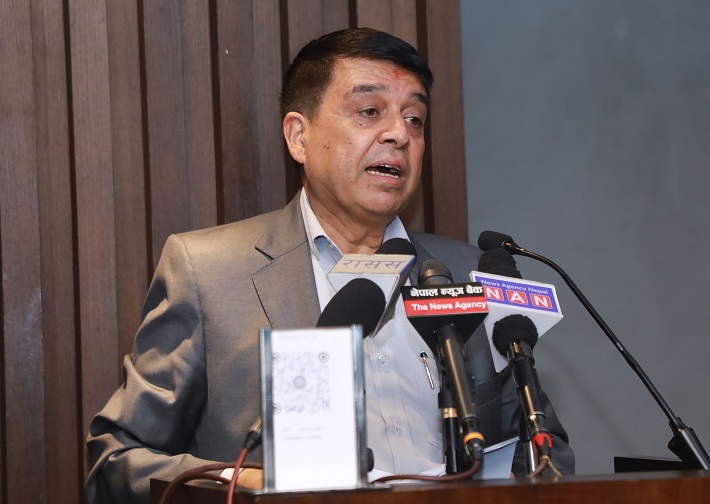Stakeholders have warned that Nepal’s growing informal economy is negatively affecting the country’s production, labour market, and revenue collection.
Speaking at a programme titled ‘Importance and Progress on Formalization of Economy in Nepal’s Context’, organized by the Federation of Nepalese Chambers of Commerce and Industry (FNCCI) in Kathmandu on Tuesday, experts emphasized the urgent need to shift informal economic activities into the formal sector.
Read: Nepal’s Shadow Economy Equals Half of GDP
FNCCI President Chandra Prasad Dhakal stressed the importance of formalizing businesses, industries, and service sectors to ensure healthy labour relations and protect workers' welfare. “The rise of the informal economy has impacted production and revenue collection,” Dhakal said. “Our competitive capacity will improve if we bring the informal economy into the formal framework.”
Former Secretary Mahesh Dahal echoed similar concerns, calling the informal economy a major challenge in developing and underdeveloped countries. He noted that critical laws such as the Labour Act, Trade Union Act, and Bonus Act remain unenforced in the informal sector, leaving millions of workers unprotected.

Read: Informal Economy Poses Major Challenge in Madhes Province: NRB report
Joint Secretary at the Ministry of Labour, Employment and Social Security, Pradip Kumar Koirala, admitted the government has struggled to bring informal workers—particularly home-based ones—into the social security net. “We can’t even identify the employers in the informal sector, which complicates the formalization process,” Koirala said.
Participants urged the government and private sector to gradually integrate informal workers into the formal system by regularly updating labour records and ensuring access to social security benefits.
A recent study by Tribhuvan University estimates that the informal sector accounts for 42 percent of Nepal’s economy. – RSS
Read: Organised Street Vending












